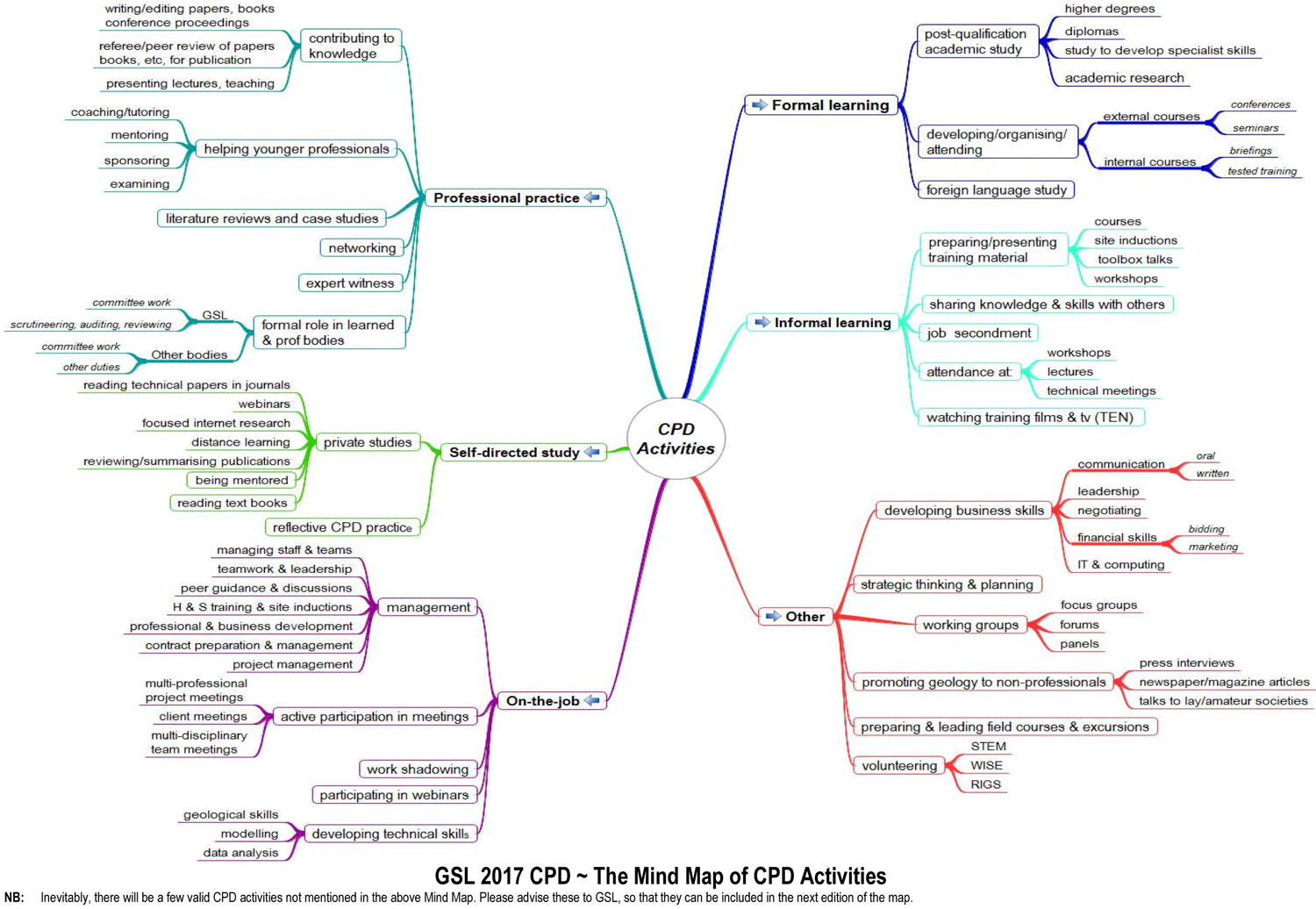A Mind Map of possible CPD activities has been developed for the new system and there are now six main categories.
Click on the map for a larger view.
Formal learning; Informal learning; Professional practice; Self-directed study; On the job learning; Other

You can also download a PDF copy of the Mind Map and the complementary look up table for a your use.
The categories and activities within the Mind Map are listed below.
Formal learning
Post-qualification academic study - higher degrees; diplomas; study to develop specialist skills; academic research
Developing, organising and or attending - External course - conferences; seminars
- Internal courses - briefings; tested training
Foreign language study
Informal learning
Preparing/presenting training material - courses; site inductions; toolbox talks; workshops
Sharing knowledge & skills with others
Job secondment
Attendance at - workshops; lectures; technical meetings
Watching training films & tv (TEN)
Professional practice
Contributing to knowledge - writing/editing papers, books or conference proceedings; referee/peer review of papers, books etc. for publication; presenting lectures, teaching
Helping younger professionals - coaching/tutoring, mentoring, sponsoring, examining
Literature reviews and case studies
Networking
Expert witness
Formal role in learned and professional bodies - GSL - committee work; scrutineering reviewing, auditing
- Other bodies - committee work; other duties
Self-directed study
Private studies - reading technical papers in journals; webinars; focused internet research; distance learning; reviewing/summarising publications; being mentored; reading text books
Reflective CPD practice
On-the-job learning
Management - managing staff & teams; teamwork & leadership; peer guidance & discussions; H&S training & site inductions; professional & business development; contract preparation & management; project management
Active participation in meetings - multi-professional project meetings; client meetings; multi-disciplinary team meetings
Work shadowing
Participating in webinars
Developing technical skills - geological skills; modelling; data analysis
Other
Developing business skills - communication (oral and written), leadership, negotiating, financial skills (bidding, marketing) IT & computing
Strategic thinking & planning
Working groups - focus groups, forums, panels
Volunteering - STEM; WISE; RIGS